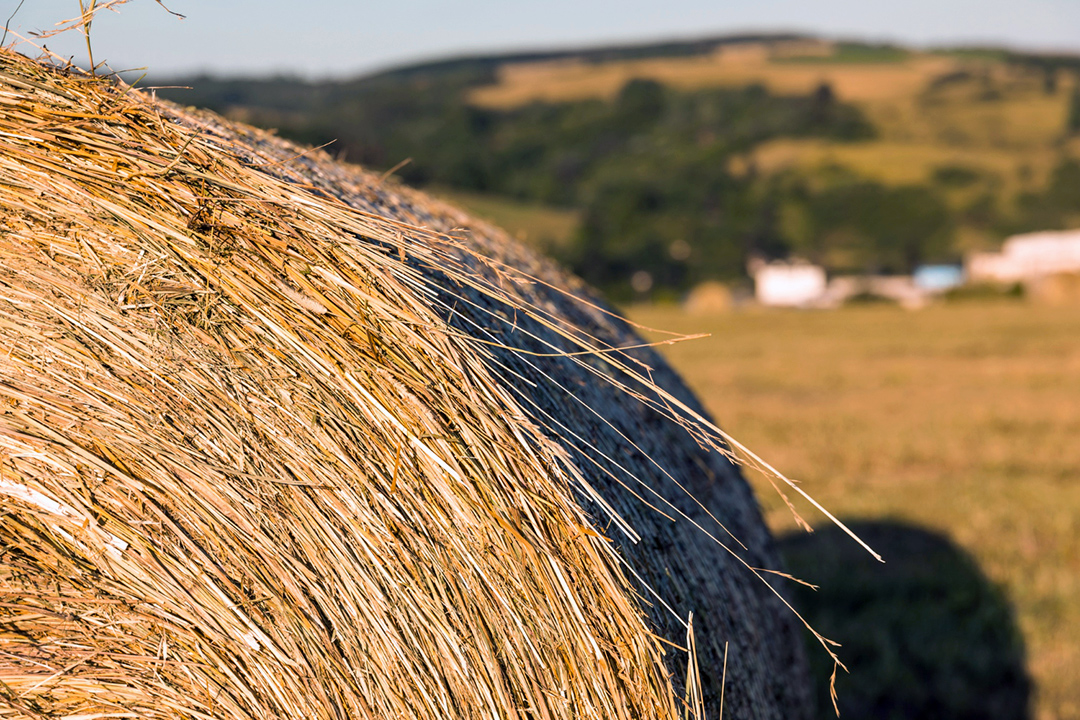South African farmers; maintaining the nutritional content and quality of your hay is essential to the well-being of your animals. Hay storage is absolutely key since moisture exposure can cause hay to deteriorate, grow mould and fungi, and lose some of its nutritional value.
Farmers and animal caregivers face certain difficulties when it comes to affordable and effective food storage. Bulk bags, also called flexible intermediate bulk containers (FIBCs) can be the ideal packaging solution for hay storage and transport.
Custom Bulk Bags is a well-known manufacturer and supplier of FIBCs in South Africa. We produce up to 3.5 million bulk bags per year and our products can safely hold between 500kg and two tonnes of material per bag. We offer several UN-certified designs and attachments, making our products fully customisable to meet your needs.
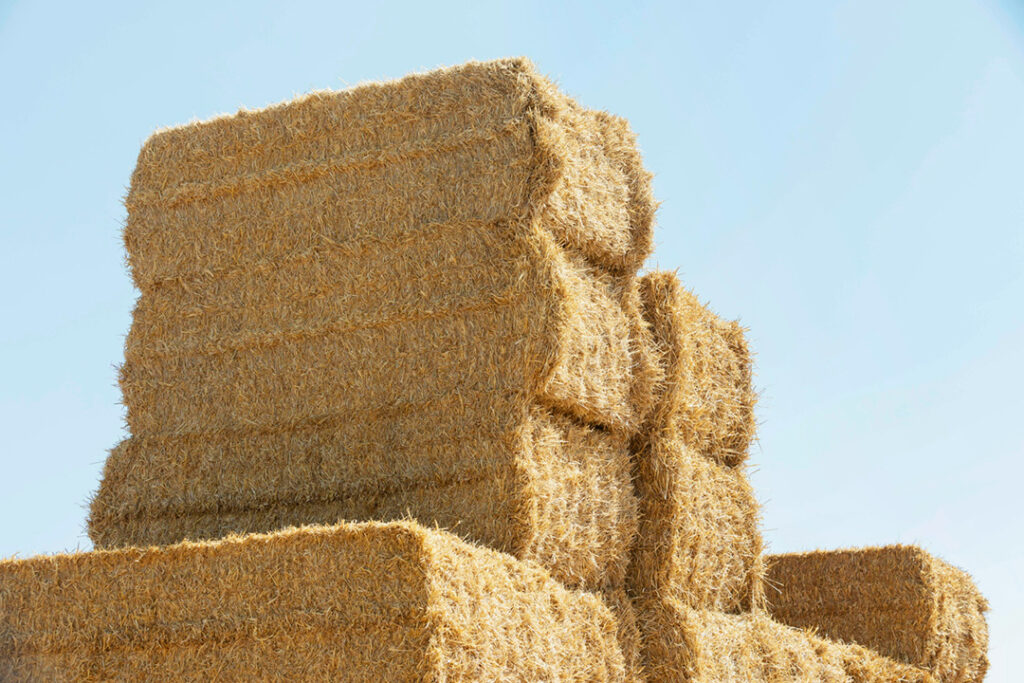
The value of storing hay properly
For cattle, horses, donkeys and certain antelope, hay is a critical source of roughage that helps maintain digestive function and supply vital nutrients. Poor storage conditions can seriously affect the quality of hay, which could spell disaster for your animals and bottom line.
Exposure to moisture is one of the worst things for hay since it can cause the growth of fungi and bacteria, which spoils and lowers the hay’s nutritional value for animals. Toxic mould can also spread throughout the hay, which could harm your animals’ digestive and respiratory systems.
Exposure to moisture can also break down vital elements, such as proteins and vitamins, which reduces the hay’s overall health advantages for your animals. For these reasons, selecting the best storage option is essential to safeguarding your investment and guaranteeing the best possible health for your animals.
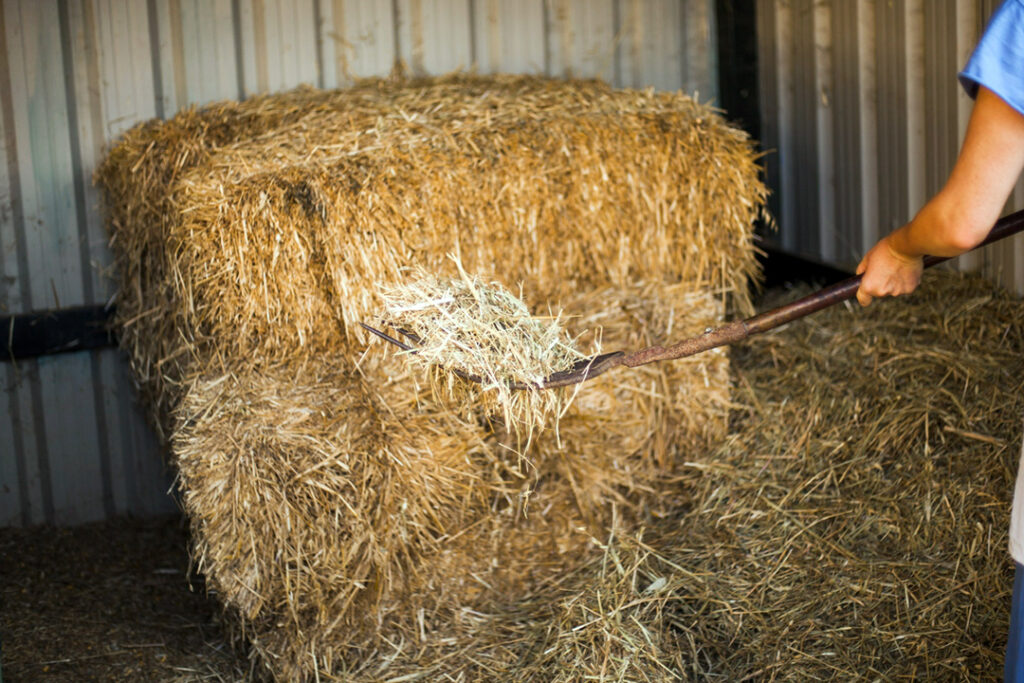
Bulk bags: A novel approach to hay storage
Hay has historically been kept in barns – either loose or in bales. These storage techniques offer short-term advantages but when looking at the long-term process, they do have certain drawbacks. While loose hay can be messy and prone to waste, bales need a lot of room and are vulnerable to moisture.
Bulk bags are a strong, affordable and versatile substitute. These large, pliable hay storage containers offer multiple benefits due to their strong woven polypropylene construction. By forming a shield against precipitation, dew, and other moisture-causing agents, bulk bags help keep your hay dry and reduce spoiling.
Compared to loose hay, bulk bags can be safely stacked to maximise storage space in barns or sheds. They can also be filled with bales and prevent the hay from coming loose – even tied bales lose hay when being stored or moved around. Bulk Bags will prevent this loss and maximise your yield.
The lifting loops or straps attached to bulk bags make it simple to move them around with forklifts or other agricultural machinery. This makes it easier for your farmworkers to manage the hay. Lastly, bulk bags are a more affordable option than specialised storage structures or conventional hay bale covers. They come in a range of sizes and can be customised to your specifications.
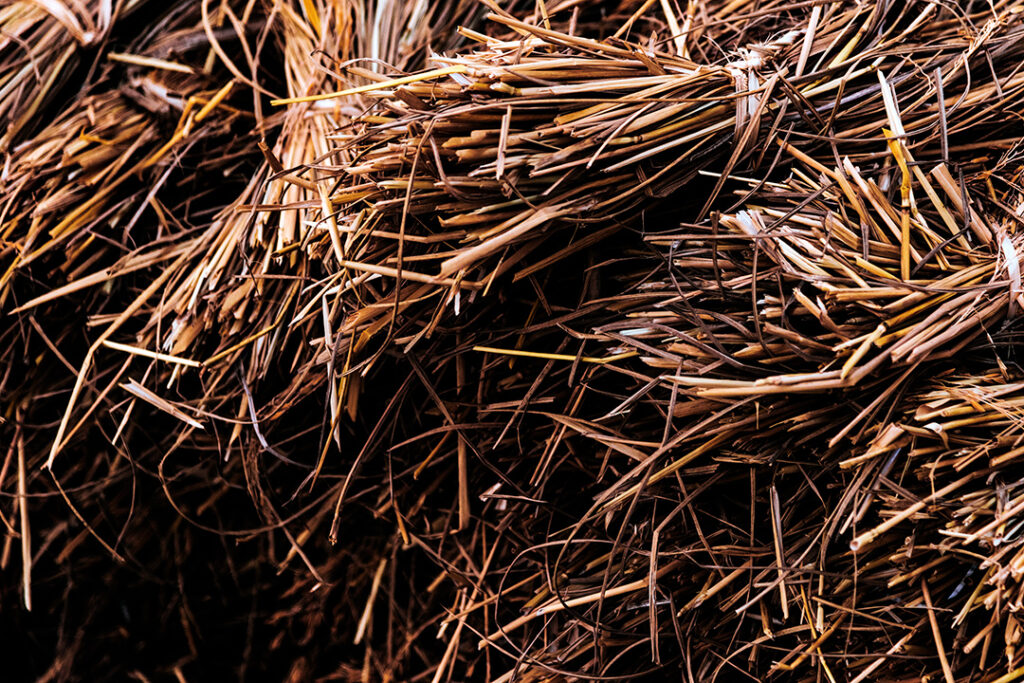
Best practices for hay storage in South Africa
Farmers should understand the local laws or industry standards regarding the packaging of animal feed in South Africa. The following are important things to remember:
- The Department of Land Reform and Rural Development (DALRRD) is responsible for overseeing the production and storage of animal feed. Although they do not have laws specifically for hay storage containers, they do place a strong emphasis on good agricultural practices to guarantee the safety and quality of animal feed.
- Good agricultural practices are a collection of rules that support environmentally friendly and safe methods of producing animal feed. These recommendations promote taking precautions against contamination and preserving feed quality during storage. Using hygienic, well-maintained bulk bags is consistent with these guidelines.
- SANS standards contain the relevant information about bulk bags’ appropriateness for hay storage. To make sure your chosen bulk bags meet any applicable standards, check with the South African Bureau of Standards (SABS) or a reliable FIBC supplier like Custom Bulk Bags.
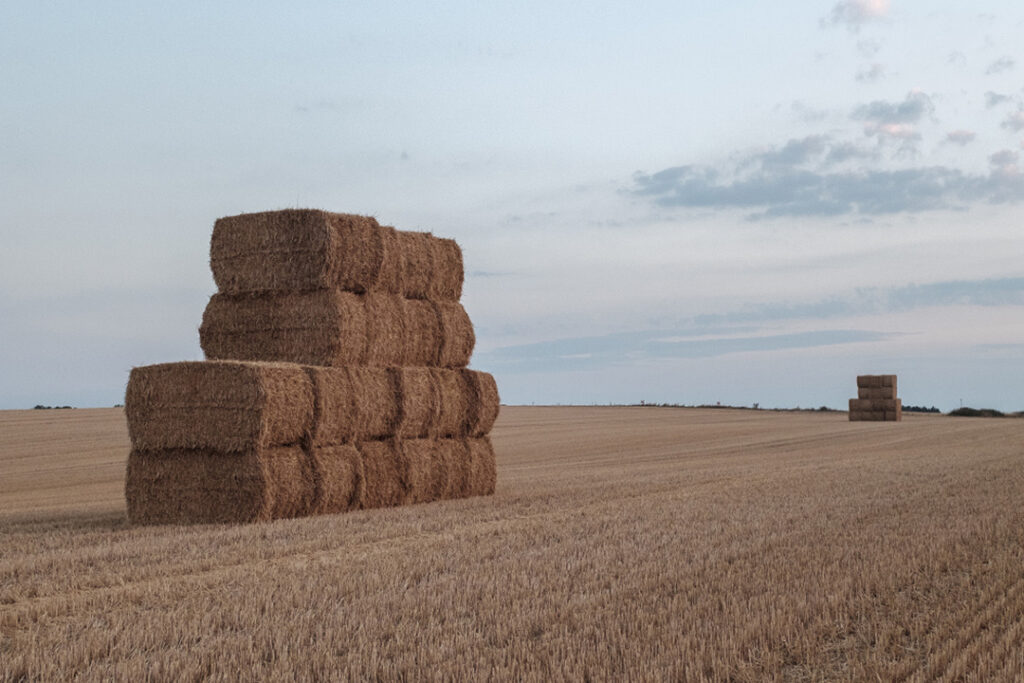
To reduce the chance of spoiling inside the bulk bags, start with dry, high-quality hay. Look for ventilated or breathable bulk bags; these bags can let out any moisture that has been trapped while keeping the hay protected and dry. To stop moisture intrusion, make sure the bulk bags are properly filled and sealed.
Keep your filled bulk bags in a cold, dry, and well-ventilated space – ideally, a shed or barn. Check your bulk bags frequently for leaks or signs of deterioration. To avoid being exposed to moisture, damaged bags should be replaced.
Hay storage is not the only use for bulk bags. Bulk bags can be used to store pelleted feed or grains to keep different kinds of animal feed safe from moisture and pests. FIBCs also work great for other crops like peanuts, corn and soybeans. They are a dependable option for secure and effective transportation because of their sturdy structure and lifting capacity.
Farms can reuse their used bulk bags for waste management. Before being disposed of, they can store manure, bedding, or other agricultural waste. This makes them an environmentally friendly, multi-purpose packaging solution for farmers in South Africa.
At Custom Bulk Bags, we’re dedicated to giving South African farmers FIBCs that are strong, long-lasting and made especially for agricultural uses. For your hay storage needs, our team of professionals can recommend the best FIBC type and size. For more information about our bulk bags or to get advice on the ideal design specifications, please contact us today.
___
Custom Bulk Bags is a leading South African manufacturer of woven polypropylene bags for various industries, such as mining, chemicals and food. We are able to produce over 3.5-million bulk bags per year, keeping our customers in stock at all times. Our bags adhere to the highest levels of quality as a result of our stringent in-house testing and quality control programmes.
Custom Bulk Bags holds ISO 9001 certification and we currently have a number of UN-certified designs. We are a Level 2 B-BBEE manufacturer and supplier and fall under the ownership structure of Deneb Investments Limited. For more information on our products, contact sales@custombulkbags.co.za. Follow us on Facebook, LinkedIn and Instagram for our latest news and industry insights.
